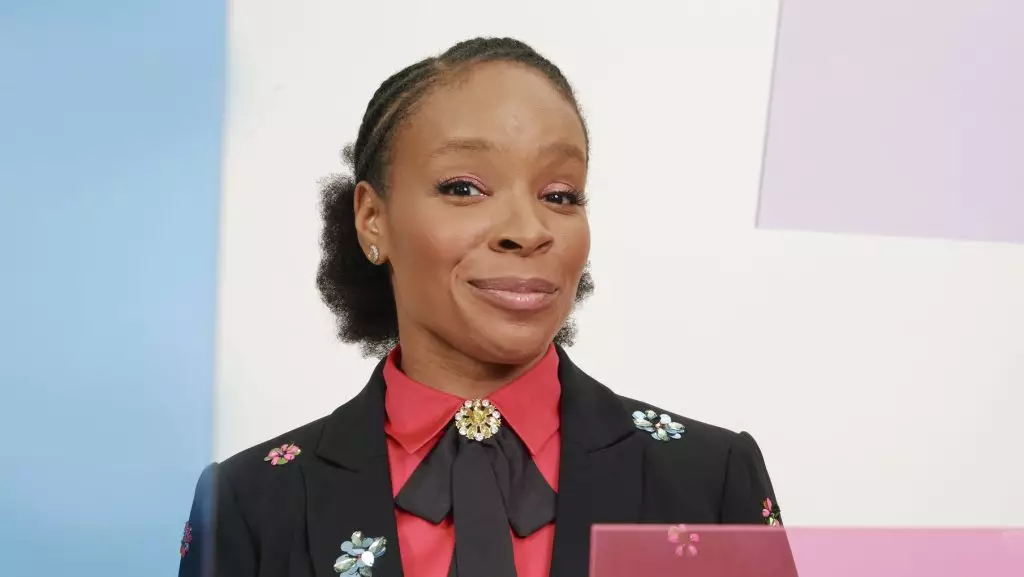The decision by the White House Correspondents’ Association (WHCA) to omit a comedic performance from its annual dinner marks a pivotal moment in a tradition that has navigated the delicate balance between entertainment and reverence for the journalistic profession. Initially slated to feature comedian Amber Ruffin, the WHCA leadership, led by President Eugene Daniels, has opted for a more introspective approach during an era where the political environment is fraught with division and hostility towards the media. This choice reflects a conscious effort to pivot away from humor that may alienate segments of the audience, particularly considering the pressures and criticisms on both sides of the aisle.
This year’s dinner will instead focus on celebrating journalistic excellence and fostering future talents through scholarships and mentorship, a decision articulated in Daniels’ communication to WHCA members. The sentiment is laudable – to honor the essence of the press as a bedrock of democracy during tumultuous times – yet it raises questions about the boundaries imposed on free speech and creative expression in the context of high-stakes political affairs.
Political Underpinnings and Reception
The backlash surrounding the choice of Ruffin as the featured entertainer signals the heightened sensitivity in today’s polarized political climate. Critics from within the current administration have pointed to her previous jokes targeting figures like Donald Trump as grounds for concern. Ruffin’s sharp wit and unapologetic style could easily trigger backlash, just as past performances have done, leading to a perception that humor has become a weapon rather than a bridge.
The recent history of the dinner, particularly during Trump’s presidency, highlights a recurring pattern of discomfort between political figures and comedic interpretations of their actions. The move to eliminate comedy may be an attempt to quench the flames of divisiveness, but it inadvertently creates a void that might stifle important conversations. Should humor not serve as a means of social critique and reflection, even in the high-energy halls of Washington?
Moreover, the reactions from the political sphere reveal that humor’s role is more than mere entertainment; it acts as a barometer for public sentiment. Through laughter, comedians can address and critique the absurdities inherent in political life, a function that could be lost if the association continues along its current trajectory of avoiding comedy.
The Legacy of the WHCA Dinner
The White House Correspondents’ Dinner has historically been a dazzling display of celebrity, politics, and satire, featuring powerful figures sharing the same stage, often to humorous effect. Yet, the intense scrutiny from both the public and political challengers has transformed the event over the years. Past performances, such as Stephen Colbert’s iconic roast of George W. Bush, epitomized the thin line that comedians must walk—serving up humor that entertains the crowd while potentially discomfiting the very individuals being lampooned.
In the wake of Michelle Wolf’s unfettered set during the Trump administration, which bordered on confrontational, the decision to forgo comedy altogether can be seen as both a retreat and a reinvention. For many, this absence could give the impression that laughter has been deemed too dangerous a commodity to be traded in the solemnity of journalistic accolades.
While diversifying the selection of speakers might lend a fresh take on the evening, it is vital to question whether the absence of comedy signifies a broader unwillingness to reckon with uncomfortable truths. Wolff’s and Ruffin’s performances illustrated the potential of humor to encapsulate the fraught relationship between the media and the powers that be—a reminder that laughter can disarm and provoke while also fostering accountability.
Charting a New Path for Media Recognition
The WHCA’s embrace of a more “serious” tone at this year’s dinner has sparked intrigue around what the event will entail. Daniels hints at an evolution in how the gathering may celebrate press freedom and journalistic integrity, entities among the highest values of American democracy. However, he must tread carefully. By emphasizing a solemn atmosphere, there exists a risk of alienating an audience that thrives on levity amid the pressing issues faced by journalists today.
If the dinner intends to showcase the importance of a free and independent press, it should embrace its multifaceted nature, one that acknowledges humor as a potent tool for critique and reflection. As the association navigates this nuanced terrain, it must remain steadfast in honoring not only the profession’s past but also its future—one that could invariably blend earnestness with a touch of the irreverent, perhaps even sparking laughter in the face of adversity.
In crafting an environment that celebrates journalistic achievements, the WHCA must also be mindful that a little levity can go a long way in forging connections and advocating for a valuable discourse, ultimately enriching the fabric of democracy.


Leave a Reply